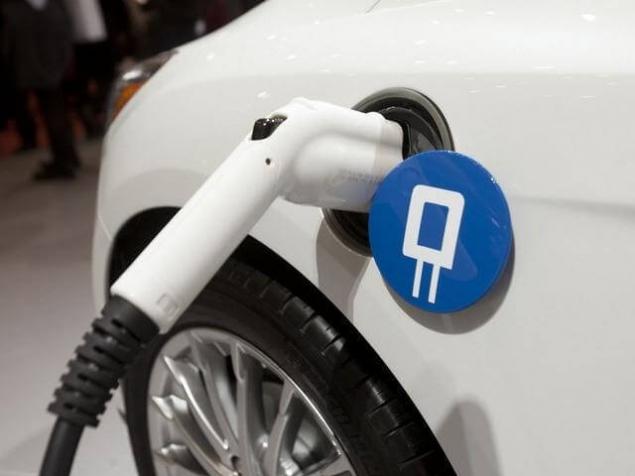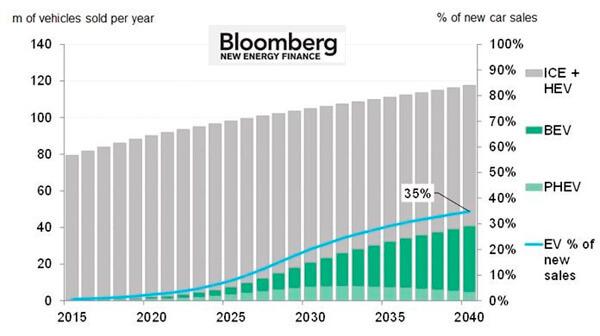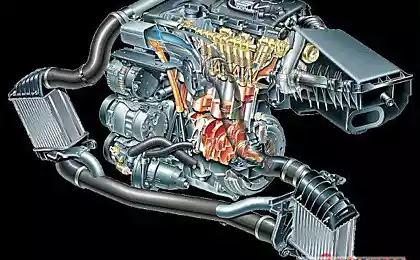423
Revolution in the field of electric transport may be more radical than expected
Studies show that in markets without additional incentives total cost of ownership of EVS will be lower than for a vehicle with an internal combustion engine by mid 2020-ies (photo: ecoconceptcars.ru)Revolution in the field of electric transport may be more radical than it seems inog governments and oil companies. In a new study by Bloomberg New Energy Finance (BNEF) suggests that due to the reduction in the price of batteries during the 2020-ies, in most countries, electric cars will become more economical than petrol or diesel.

The study, published today, predicts that sales of electric cars reach 41 million by 2040, which will account for 35% of sales of new passenger cars. This is almost 90 times higher than that of 2015, when the world had sold 462 of thousands of electric vehicles, 60% more than in 2014.
Sales growth of electric vehicles will affect not only the market. Studies show that sales growth will lead to the fact that by 2040 a quarter of all cars on the road are electric vehicles. Instead of using 13 million barrels of crude oil a day, they will consume 1,900 TWh of electricity, accounting for 8% of global electricity consumption in 2015. Already by 2023 the demand for oil due to electric vehicles could fall by 2 million barrels a day. Colin Mackerracher (Colin McKerracher), an analyst at BNEF: "the basis of this forecast is that we research the prices on automotive battery. Prices for lithium-ion batteries has already fallen by 65% since 2010, reaching $350 per kWh last year. We expect that the price of batteries will be significantly lower than $120 per kWh in 2030 and continue to fall after the appearance of new technologies in the chemistry of batteries." Morsy Salim (Salim Morsy), senior analyst and author of the study, said: "Our main forecast is based on the recovered crude oil price of $50, with a further trend back up to $70 per barrel or higher by 2040. If the price of oil falls to $ 20 and will remain at this level, it is only to delay the massive spread of electric cars in the beginning of 2030-ies". The market for electric vehicles is currently highly dependent on the aspirations of people to try out new technology and their concerns about the environment and government incentives in countries such as China, the Netherlands and Norway. Although to date in the world sold more than 1.3 million electric vehicles, they still represent less than 1% of new sales of passenger vehicles. Electric cars can be divided into two types — pure electric vehicles (that use to dienia only stored in batteries, the energy, and hybrids, with the backup engine to recharge. Leaders of sales of cars of the first type the last six years, remains the Nissan Leaf, the best-selling hybrid, the Chevrolet Volt.

Studies show that in markets without additional incentives total cost of ownership of EVS will be lower than for a vehicle with an internal combustion engine by mid 2020-ies, even if the latter will continue to increase the efficiency by 3.5% per year. It is expected that electric cars with the 60 kWh battery can drive 200 miles on a single charge, and the cost will be around 30-50 thousand dollars. The first generation of such electric cars will be a hit in the next 18 months since the launch of the Chevy Bolt and Tesla Model 3. The study's author added: "In the next few years, the cost of ownership of the carts will fall, but will still be higher than for traditional cars. Therefore, we expect that sales of electric vehicles will not exceed 5% in most markets, except those where the state pays to people the difference. However, the difference in cost of ownership will dramatically change in 2020-ies".published
P. S. And remember, only by changing their consumption — together we change the world! ©
Join us in Facebook , Vkontakte, Odnoklassniki
Source: www.energy-fresh.ru/news/?id=12889

The study, published today, predicts that sales of electric cars reach 41 million by 2040, which will account for 35% of sales of new passenger cars. This is almost 90 times higher than that of 2015, when the world had sold 462 of thousands of electric vehicles, 60% more than in 2014.
Sales growth of electric vehicles will affect not only the market. Studies show that sales growth will lead to the fact that by 2040 a quarter of all cars on the road are electric vehicles. Instead of using 13 million barrels of crude oil a day, they will consume 1,900 TWh of electricity, accounting for 8% of global electricity consumption in 2015. Already by 2023 the demand for oil due to electric vehicles could fall by 2 million barrels a day. Colin Mackerracher (Colin McKerracher), an analyst at BNEF: "the basis of this forecast is that we research the prices on automotive battery. Prices for lithium-ion batteries has already fallen by 65% since 2010, reaching $350 per kWh last year. We expect that the price of batteries will be significantly lower than $120 per kWh in 2030 and continue to fall after the appearance of new technologies in the chemistry of batteries." Morsy Salim (Salim Morsy), senior analyst and author of the study, said: "Our main forecast is based on the recovered crude oil price of $50, with a further trend back up to $70 per barrel or higher by 2040. If the price of oil falls to $ 20 and will remain at this level, it is only to delay the massive spread of electric cars in the beginning of 2030-ies". The market for electric vehicles is currently highly dependent on the aspirations of people to try out new technology and their concerns about the environment and government incentives in countries such as China, the Netherlands and Norway. Although to date in the world sold more than 1.3 million electric vehicles, they still represent less than 1% of new sales of passenger vehicles. Electric cars can be divided into two types — pure electric vehicles (that use to dienia only stored in batteries, the energy, and hybrids, with the backup engine to recharge. Leaders of sales of cars of the first type the last six years, remains the Nissan Leaf, the best-selling hybrid, the Chevrolet Volt.

Studies show that in markets without additional incentives total cost of ownership of EVS will be lower than for a vehicle with an internal combustion engine by mid 2020-ies, even if the latter will continue to increase the efficiency by 3.5% per year. It is expected that electric cars with the 60 kWh battery can drive 200 miles on a single charge, and the cost will be around 30-50 thousand dollars. The first generation of such electric cars will be a hit in the next 18 months since the launch of the Chevy Bolt and Tesla Model 3. The study's author added: "In the next few years, the cost of ownership of the carts will fall, but will still be higher than for traditional cars. Therefore, we expect that sales of electric vehicles will not exceed 5% in most markets, except those where the state pays to people the difference. However, the difference in cost of ownership will dramatically change in 2020-ies".published
P. S. And remember, only by changing their consumption — together we change the world! ©
Join us in Facebook , Vkontakte, Odnoklassniki
Source: www.energy-fresh.ru/news/?id=12889
The greatest love letter of all time!
How to lower blood pressure without pills – 4 effective Eastern practices























